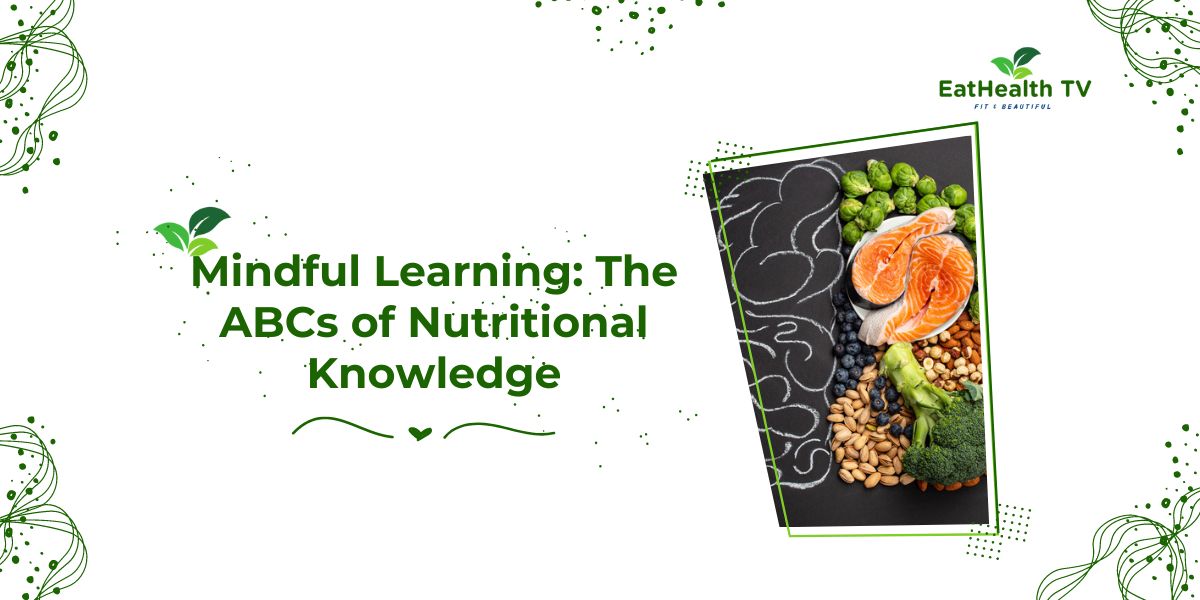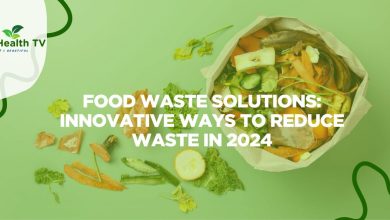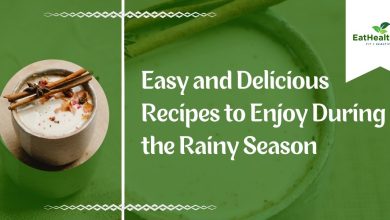Mindful Learning: The ABCs of Nutritional Knowledge
Nourish Your Mind and Body: Unlocking the Power of Mindful Learning in Nutrition

Mindful Learning: The ABCs of Nutritional Knowledge
In today’s fast-paced world, where convenience often takes precedence over health, understanding the fundamentals of nutrition is more important than ever. Nutritional knowledge not only impacts our physical health but also plays a significant role in our mental well-being and overall quality of life. This article explores the concept of mindful learning in nutrition, delving into the essential principles of healthy eating and the importance of making informed dietary choices.
Understanding Mindful Learning
Mindful learning in nutrition involves cultivating awareness, curiosity, and intentionality in our approach to food and nutrition. It goes beyond memorizing facts and figures; it’s about developing a deeper understanding of how food affects our bodies, minds, and environment. Mindful learners are conscious of their dietary choices, actively seeking knowledge and making decisions that align with their health goals and values.
The ABCs of Nutritional Knowledge
To embark on a journey of mindful learning in nutrition, it’s essential to familiarize oneself with the ABCs of nutritional knowledge:
Understanding Macronutrients:
Macronutrients are the building blocks of a healthy diet and include carbohydrates, proteins, and fats. Understanding the role of each macronutrient in the body and how to balance them appropriately is crucial for maintaining optimal health.
- Carbohydrates: Carbohydrates are the body’s primary source of energy and are found in foods such as grains, fruits, vegetables, and legumes. Mindful learners understand the difference between simple and complex carbohydrates and strive to incorporate whole grains and fiber-rich foods into their diets.
- Proteins: Proteins are essential for building and repairing tissues, supporting immune function, and maintaining muscle mass. Mindful learners choose a variety of protein sources, including lean meats, poultry, fish, eggs, dairy products, legumes, and nuts, and seeds.
- Fats: Fats play a vital role in hormone production, nutrient absorption, and cell membrane function. Mindful learners prioritize healthy fats found in foods like avocados, nuts, seeds, olive oil, and fatty fish while limiting intake of saturated and trans fats. Just as we know Mindful Eating: The Psychology Behind Nutrition Choices
Exploring Micronutrients:
Micronutrients are vitamins and minerals that are essential for various physiological functions in the body. Mindful learners understand the importance of consuming a diverse array of micronutrient-rich foods to meet their nutritional needs.
-
- Vitamins: Vitamins are organic compounds that regulate metabolism, support immune function, and promote overall health. Mindful learners ensure they consume a variety of fruits, vegetables, whole grains, and fortified foods to obtain a spectrum of vitamins, including vitamin A, vitamin C, vitamin D, and the B vitamins.
- Minerals: Minerals are inorganic nutrients that are critical for bone health, fluid balance, nerve function, and other physiological processes. Mindful learners incorporate mineral-rich foods such as leafy greens, nuts, seeds, dairy products, and seafood into their diets to meet their mineral requirements, including calcium, magnesium, iron, and potassium.
Practicing Portion Control:
- Portion control is key to maintaining a balanced diet and preventing overeating. Mindful learners pay attention to portion sizes and listen to their body’s hunger and satiety cues to avoid overindulgence. They use visual cues, such as measuring cups, plates, and hands, to gauge appropriate portion sizes and avoid mindless eating.
Reading Food Labels:
- Food labels provide valuable information about the nutritional content of packaged foods. Mindful learners know how to interpret food labels and look beyond marketing claims to make informed choices. They pay attention to serving sizes, ingredient lists, and nutrient content, including calories, macronutrients, vitamins, and minerals.
Embracing Mindful Eating:
- Mindful eating involves paying attention to the sensory experience of eating and cultivating a nonjudgmental awareness of food choices and eating behaviors. Mindful learners savor each bite, chew slowly, and tune into their body’s hunger and fullness signals. They eat with intention and without distractions, such as screens or multitasking, to fully appreciate the nourishment and pleasure that food provides.
The Importance of Mindful Learning in Nutrition
Mindful learning in nutrition offers numerous benefits for individuals of all ages and backgrounds:
- Promotes Health and Well-Being: By understanding the principles of healthy eating and making informed dietary choices, mindful learners can promote physical health, mental well-being, and overall vitality. They reduce their risk of chronic diseases such as obesity, diabetes, heart disease, and certain cancers and experience greater energy, vitality, and resilience.
- Fosters Sustainable Habits: Mindful learning in nutrition encourages sustainable dietary habits that prioritize health, taste, and environmental sustainability. Mindful learners support local and organic food producers, minimize food waste, and choose whole, minimally processed foods that nourish both themselves and the planet.
- Empowers Individuals: By equipping individuals with the knowledge and skills they need to make healthy food choices, mindful learning in nutrition empowers them to take control of their health and well-being. Mindful learners feel confident in their ability to navigate food environments, overcome challenges, and cultivate a positive relationship with food.
- Cultivates Mindful Eating Habits: Mindful learning in nutrition lays the foundation for mindful eating habits that promote greater satisfaction, enjoyment, and awareness of food. Mindful learners develop a deeper appreciation for the sensory experience of eating and learn to eat with intention, attention, and gratitude.
- Supports Lifelong Learning: Nutrition is a dynamic and evolving field, with new research and discoveries emerging regularly. Mindful learning in nutrition encourages individuals to remain curious, open-minded, and lifelong learners, continuously seeking out new information, perspectives, and experiences related to food and health.
Conclusion
Mindful learning in nutrition is a journey of self-discovery, empowerment, and nourishment that extends far beyond the dinner plate. By understanding the ABCs of nutritional knowledge and embracing mindful eating habits, individuals can promote their health, happiness, and holistic well-being. As we continue to explore the intersection of nutrition, mindfulness, and learning, let us cultivate a culture of informed eating that nourishes our bodies, minds, and souls for years to come.




